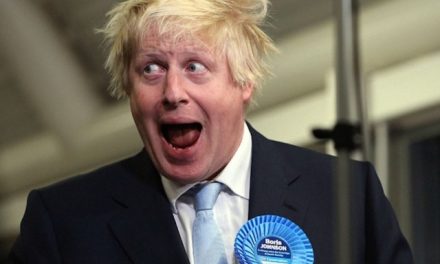.
Kerry should experience a warm bath here as I have referred to the right-wing Atlantic Council and its harsh statements of containment for Putin’s Russia in a New Cold War. The US wants to reduce its military presence in Europe and has set policy for NATO members to increase investments in its military: Navy, Air Force and Army. The Ukraine is an ideal nation to illustrate the “Imperial Danger” of the Russian Bear. A dangerous path to create division between new and old Europe, when did we take this path before? Rumsfeld in the lead-up to the Iraq War …
Secretary Kerry at the Atlantic Council’s “Toward a Europe Whole and Free” Conference
Thank you all for the privilege of sharing some thoughts with you at this both timely and very, very important gathering. It’s my privilege to be able to be here, and I’m particularly happy to be here with so many of my colleagues, both our foreign ministers and defense ministers who are here. We had a chance to chat briefly out there. We have been meeting regularly along the trail, and I have come to admire and respect each of them for the clarity of their vision and for the way in which they have been really prescient on many of these issues.
I love the new digs and thank all those who are responsible for that. And also, Fred, thanks so much for your leadership and for the tremendous work that is being done at the Atlantic Council lately, the success of this particular conference but also the work, the groundwork you’ve been laying, and the focus that you have had on the criticality of the NATO relationship, the European relationship, which, as we know, thinking back to comments of the near past about Old Europe and New Europe and other times things that have been floating out there over these last years, this discussion is even more timely and relevant.
« click for more info on New Atlanticists
John Kerry delivered the confrontational call in a speech to the
Atlantic Council think tank in Washington, DC.(AFP/Mandel Ngan)This year marks a number of different milestones that are really worth remembering, obviously beginning with the fact that it is 65 years since Secretary of State Dean Acheson and his European counterparts came together to sign the North Atlantic Treaty. And it’s been 25 years, amazingly, since the fall of the Berlin Wall. And that wall, as we all know too well, symbolically and literally divided East and West and Europe.
It’s been 15 years, and 10 years, and 5 years since then that NATO has welcomed new partners into the post-Cold War era. And as we have expanded as an organization, as NATO has expanded as an organization, I think it’s safe to say we have also expanded democracy, prosperity, and stability in Europe, and we have opened new opportunities in order to be able to advance security even further, and we have spurred economic growth around the globe.
VIDEO: Secretary Kerry Delivers Remarks at a Atlantic Council Conference
- ○ Former US Ambassador at NATO, Ivo Daalder, at Atlantic Council
○ Trans-Atlantic global leadership at stake in Ukraine – Kerry
○ The Guardian: John Kerry rips into ‘Putin’s Russia’ over Ukraine crisis
Old Europe and Disillusionment of America
Continued below the fold …
(The Economist) Sept. 10, 2009 – After two decades of sometimes fervent Atlanticism in the ex-communist world, disillusionment (some would call it realism) is growing. At its height the bond between eastern Europe and America was based, like the best marriages, on a mixture of emotion and mutual support. The romance dates from the cold war: when western Europe was sometimes squishy in dealing with the Soviet empire, America was robust. When the Iron Curtain fell, ex-dissidents and retired cold warriors found they had plenty in common. America pushed for the expansion of NATO, guaranteeing the east Europeans’ security. In return, ex-communist countries loyally supported America, particularly in providing troops for wars in Iraq and Afghanistan.
« click for info Germany’s Angela Merkel
Illustration by Peter SchrankThat relationship is now looking more wobbly. A new poll (see chart) by the German Marshall Fund, a think-tank, shows that western Europe is now much more pro-American and pro-NATO than the ex-communist east. Until last year, the eastern countries swallowed their misgivings about George Bush, while the west of the continent writhed in distaste at what many saw as his administration’s incompetence and heavy-handedness.
The ascent of Barack Obama has boosted America’s image in most countries, but only modestly in places like Poland and Romania. Among policymakers in the east, the dismay is tangible. In July, 22 senior figures from the region, including Vaclav Havel and Lech Walesa, wrote a public letter bemoaning the decline in transatlantic ties.
One reason is that the Obama administration is rethinking a planned missile-defence system, which would have placed ten interceptor rockets in Poland and a radar station in the Czech Republic, in order to guard against Iranian missile attacks on America and much of Europe. That infuriated Russia, which saw the bases as a blatant push into its front yard. Changing the scheme–probably using seaborne interceptors–risks looking like a climb-down to suit Russian interests.
Poland is also worried that a promised battery of Patriot air-defence missiles, originally to protect the interceptors, may now be only a temporary loan of dummy rockets for training purposes–“just a sales exercise”, says an official in Warsaw, crossly. America says it never intended to station real rockets there permanently.
The administration also botched its participation in Poland’s 70th anniversary commemoration of the start of the second world war on September 1st. Other countries, including Russia and Germany, sent top people. America, initially, offered only a retired Clinton-era official. William Perry, who was a notable sceptic about NATO expansion. After squawks of dismay, Jim Jones, the national security adviser, went too. But Poles sensed a snub.
My recent diary – Anglo-American Relationship, Atlanticists and Israel.






